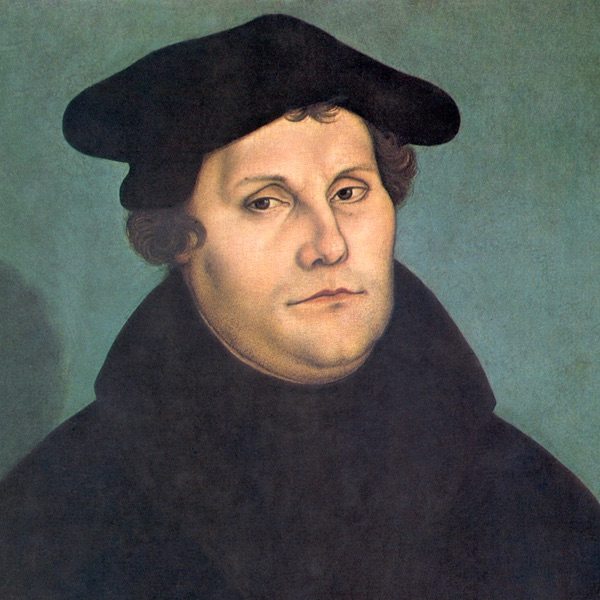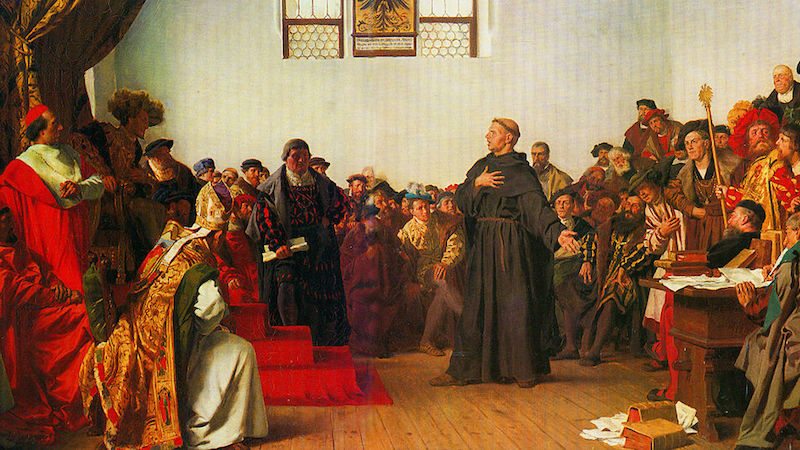Martin Luther v. Catholic Church
Episode #1 of the course “Trials that shaped the modern world”
Christian theology became more complicated throughout the Middle Ages. Most churches were tied to the papal authority in Rome, but there were many variations among Europeans’ local Catholic practices. By the beginning of the 16th century, some branches of the church had adopted practices sanctioned by Rome, but not all practitioners agreed.
Some members of the church began selling “indulgences”—forgiveness for sins that were traditionally earned through prayer or meritorious works. A German theologian and friar named Martin Luther felt this was an abuse of authority and departure from true Christian beliefs. In 1517, Luther published his “95 Theses,” railing against the sale of indulgences and other Roman Catholic practices he found corrupt.

Martin Luther
The invention of the printing press allowed Luther’s ideas to spread quickly, and he continued publishing theological essays in 1519 and 1520. Throughout Germany, elsewhere in the Holy Roman Empire, in northern Italy, and in England, people were sympathetic to his complaints against a church they saw as “interfering” in their nation. By 1520, Luther had gained a substantial readership and following. He never called for a disbanding of Christianity or of the church, but instead for a reformation to bring church practices into a closer alignment with the Bible’s teachings.

The sale of indulgences shown in A Question to a Mintmaker, woodcut by Jörg Breu the Elder of Augsburg, ca. 1530
Pope Leo X excommunicated Martin Luther in 1521, then Charles V, the Holy Roman Emperor, held a trial against him. When he refused to recant his complaints, Luther was branded a heretic and an outlaw. He immediately hid for fear of his life.
Luther’s followers, calling themselves Lutherans, were the first Protestant Christians—because they “protested” the universal church’s practices. The trial of Martin Luther changed history, because it was the first time a single man successfully stood against the Roman Catholic church and challenged its legitimacy. The mindset of questioning papal authority, and the continued practice of establishing protestant Christian denominations, ushered in the beginning of the Reformation.
Recommended book
“Here I Stand: A Life of Martin Luther” by Roland H. Bainton
Share with friends

